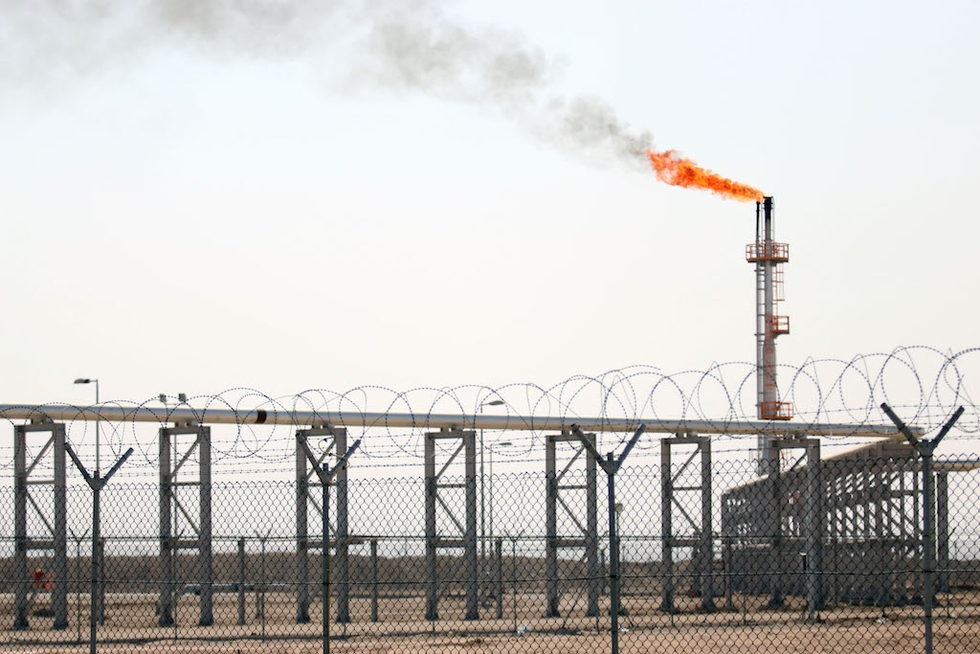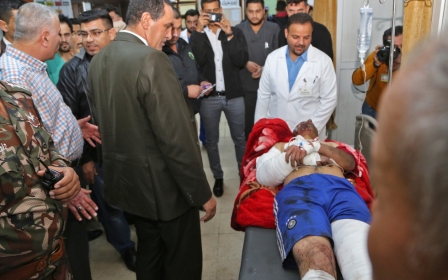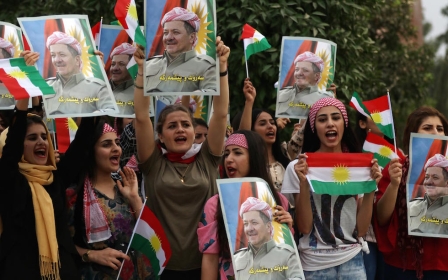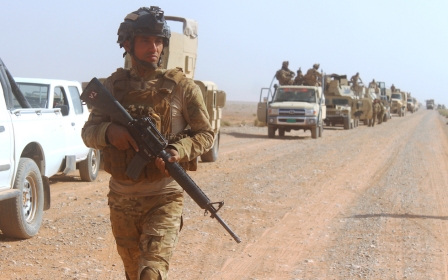Iraq plans new pipeline exporting Kirkuk oil to Turkey: Oil ministry

Iraq plans to build a new pipeline that will ship oil from Kirkuk's oilfields to the Ceyhan port in Turkey, the oil ministry said on Sunday.
The new pipeline will replace an old and severely damaged section of the Kirkuk-Ceyhan pipeline. It will start from the nearby city of Baiji city and continue until the Fishkhabour border area with Turkey, the ministry said in a statement.
The old pipeline has been severely damaged due to the repeated subversive operations of Daesh gangs ... specialized companies will be invited soon for presenting tenders
- Oil Ministry spokesman
Iraq stopped shipping oil through the Kirkuk-Ceyhan pipeline in 2014 after the region was overrun by Islamic State militants and subsequently recaptured by US-backed Iraqi forces over the past two years.
Oil Minister Jabar al-Luaibi has asked the ministry to prepare to invite companies interested in building the new pipeline project, which will be implemented under an investment model build-operate-transfer, said the statement.
"The old pipeline has been severely damaged due to the repeated subversive operations of Daesh gangs," oil ministry spokesman Asem Jihad said, using an alternative name for IS.
"Specialized companies will be invited soon for presenting tenders."
Exports from oilfields in Kirkuk have been on hold since Iraqi government forces took control of them from the Kurds last month in retaliation for a Kurdish referendum on independence which was widely opposed by Turkey, Iran and Western powers.
Iraqi oil officials accuse Kurdish authorities of not responding to requests made by the oil ministry to use the Kurdish pipeline to resume exports from Kirkuk.
The Kurdish region operates a pipeline that connects to the twin Kirkuk-Ceyhan pipeline at Fishkhabour on the border with Turkey.
However, the Fishkhabour border crossing is still controlled by Kurdish Peshmerga forces.
Oil and gas exploration
The Iraq oil ministry also announced on Sunday they would be inviting foreign energy firms to bid for the exploration and development of nine new oil and gas blocks bordering Iran and Kuwait.
Iraq is to hold a press conference on Monday to announce details of the exploration blocks, which are in the south and east of the country and include one offshore block in the territorial waters, according to the statement.
"The ministry is targeting to boost both production and reserves of oil and gas in cooperation with international companies," said the ministry statement.
Iraq has raised output rapidly in recent years with the help of foreign oil companies to become the oil cartel OPEC's second-largest producer behind Saudi Arabia.
The blocks on offer are located in the provinces of Basra, Misan, Muthanna, Wasit and the Central Diyala province.
The contracts will be different from previous service contracts Iraq signed with foreign firms to develop the country's giant southern fields, said the statement.
Under the service contracts used for Baghdad's post-2003 bidding rounds, including those for its southern fields like Rumaila, West Qurna and Majnoon, the ministry pays companies a fixed dollar-denominated fee for every barrel of oil produced.
While the model worked well for Baghdad when oil prices were high, the slump in prices left Baghdad paying the same fees to firms like BP, Exxon, Lukoil and Shell at a time when revenue from oil sales was significantly lower.
New MEE newsletter: Jerusalem Dispatch
Sign up to get the latest insights and analysis on Israel-Palestine, alongside Turkey Unpacked and other MEE newsletters
Middle East Eye delivers independent and unrivalled coverage and analysis of the Middle East, North Africa and beyond. To learn more about republishing this content and the associated fees, please fill out this form. More about MEE can be found here.




